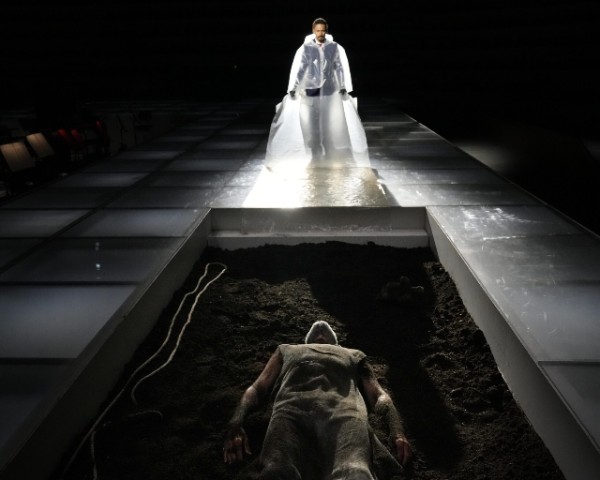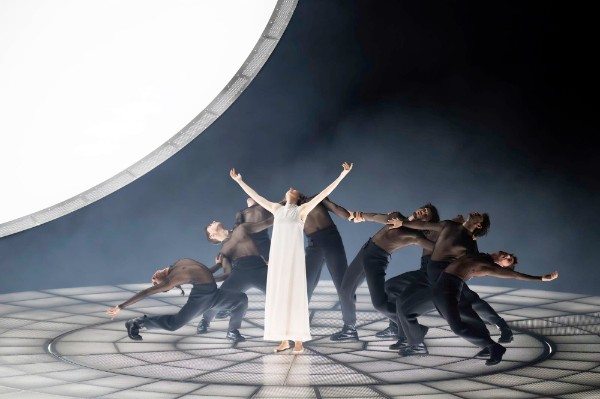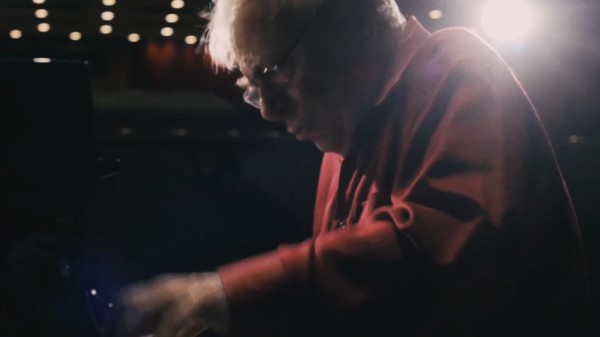The Verbier Festival, founded by Swedish expatriate Martin Engstroem in 1994, takes place annually for two weeks in late July and early August in the mountain resort of Verbier, Switzerland. It is one of the most distinguished and celebrated international music festivals in the world, attracting international soloists of the highest calibre and renown.
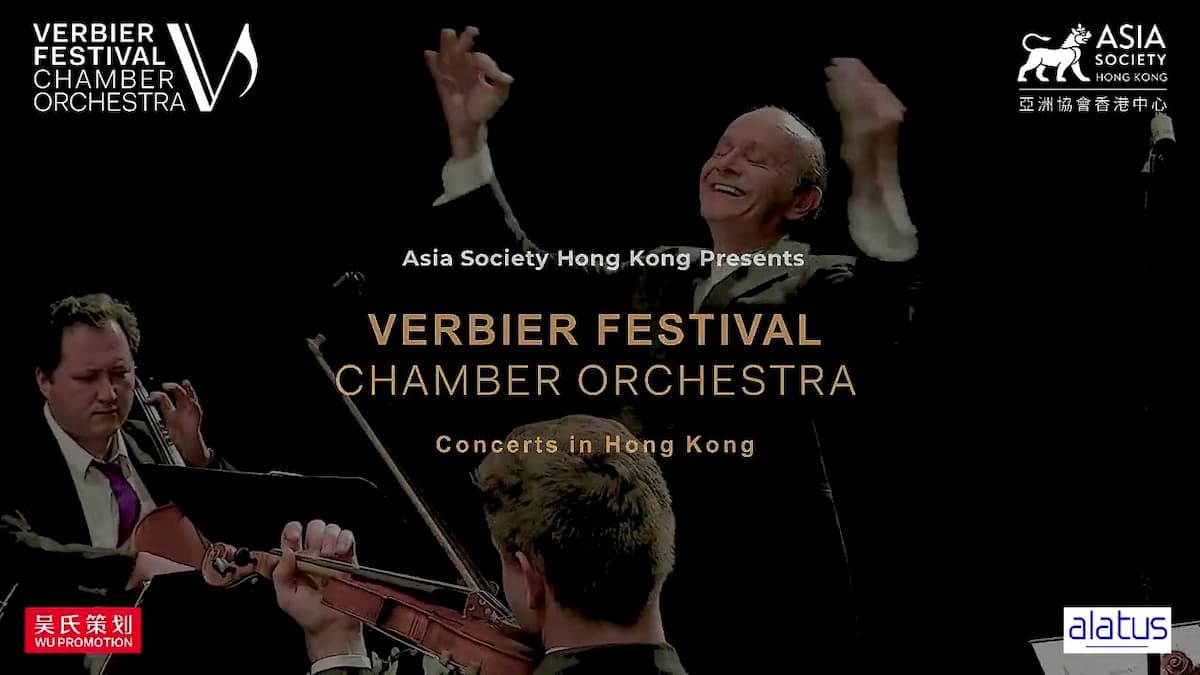
It is hardly surprising that a festival of such magnitude would rely on 3 different orchestras. The Verbier Festival Junior orchestra nurtures young musicians ranging in age from 14-17, and the Verbier Festival Orchestra auditions the most exceptional young orchestra musicians in the 18 to 28 year age group from around the globe.
Verbier Festival Chamber Orchestra/Martin Fröst
Verbier Festival Chamber Orchestra
While the Verbier Festival Orchestra is a rite of passage for today’s most exceptional musicians, the Verbier Festival Chamber Orchestra is comprised of alumni from the Verbier Festival Orchestra. One of the top chamber orchestras in the world, and the resident chamber orchestra of the Verbier Festival, its members now hold positions in leading international ensembles.
The VFCO is the musical ambassador of the Verbier Festival, and the orchestra is led by acclaimed Music Director Gábor Takács-Nagy. Gábor Takács-Nagy, a founding member and principal violin of the Takács Quartet, was appointed Music Director in 2007. Since then, he has taken the VFCO on celebrated tours around the world. They kick off their China Tour 2024 with an electrifying performance in Hong Kong on 24 March 2024.
Ludwig van Beethoven: Symphony No. 7 in A Major, Op. 92 (Verbier Festival Chamber Orchestra; Gábor Takács-Nagy, cond.)
Beethoven Triple
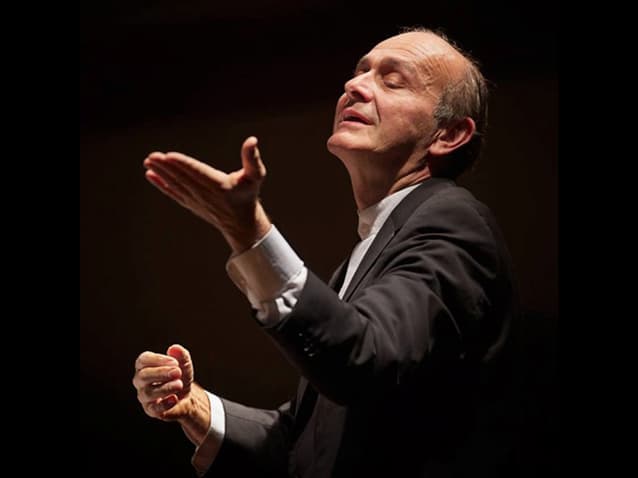
Gábor Takács-Nagy
The Hong Kong performance features the Concerto for Violin, Cello and Piano in C Major, Op. 56 by Ludwig van Beethoven. More commonly known as the “Triple Concerto” the work represents a stylistic and formal hybrid designed to accommodate three soloists. One of these intended soloists was the sixteen-year-old Archduke Rudolf, who at that time took piano lessons with Beethoven. As a result, the flashy piano part is comparatively straightforward, specifically when weighed against the formidable technical challenges assigned to the violin and cello.
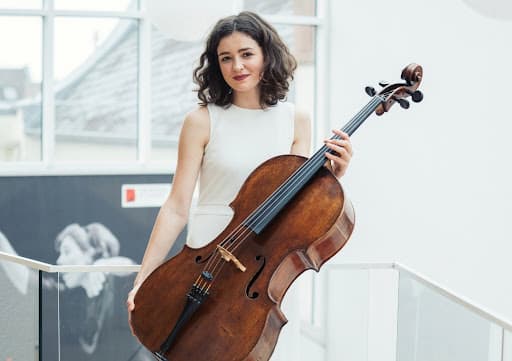
Anastasia Kobekina
In today’s concert with the Verbier Festival Chamber Orchestra the piano part is taken by the exceptional Alexander Malofeev, a genius performer who won the International Tchaikovsky Competition for Young Musicians at age thirteen. Complete technical accuracy and command reveal one of the most prominent pianists of his generation. For Belgian violinist Marc Bouchkov, a sophisticated artist of Russian-Ukrainian heritage, the human voice remains the main inspiration for communicating emotions directly to his audiences, and Anastasia Kobekina received her first cello lessons at the age of four. Known for her breath-taking musicality, her extraordinary versatility, and her infectious personality, “Kobekina plays with gorgeous elegance and effortlessly wide lines.”
Verbier Festival Chamber Orchestra/Renaud Capuçon
Beethoven 7th Symphony
When Napoleon Bonaparte led his soldiers into Vienna to occupy the city in 1809, the ruling nobility quickly packed their bags and fled the beleaguered city. Beethoven remained in Vienna, and bitterly complained that the booming cannons were causing his eardrums a great deal of pain. Finally in 1813, Napoleon was defeated at the battle of Leipzig and hastily retreated towards France, with the Austrian army unsuccessfully trying to block his retreat at the battle of Hanau. To benefit Austrian soldiers wounded in that battle, the city of Vienna hosted a charity concert on 8 December 1813, and Beethoven introduced his seventh symphony to the public.
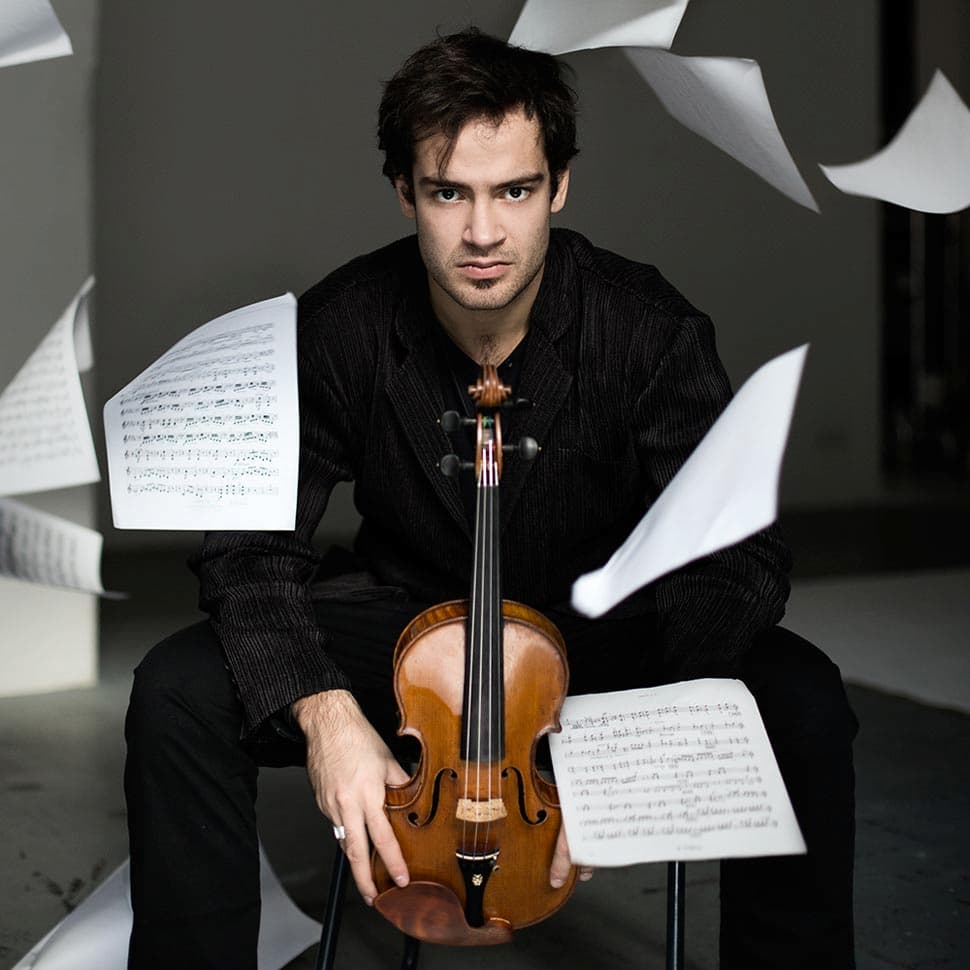
Marc Bouchkov
This new work proved immensely popular and received multiple repeat performances in the weeks after. Beethoven himself declared the work “one of the happiest products of my poor talents.” First drafts for this symphony date from late 1811, and immediately provide a sense of Beethoven’s distinctive use of rhythm and pioneering sense of key relationships. Scholars have suggested the work is perhaps less immediate in its emotional effect than the “Eroica” or the Fifth, “but its élan and its effortless control over musical processes at every level can make those earlier works seem more than a little hectic.”
Wolfgang Amadeus Mozart: Sinfonia concertante in E-Flat Major, K. 364 (Maxim Vengerov, violin; Lawrence Power, viola; UBS Verbier Festival Chamber Orchestra)
Verbier Festival Trio Recital
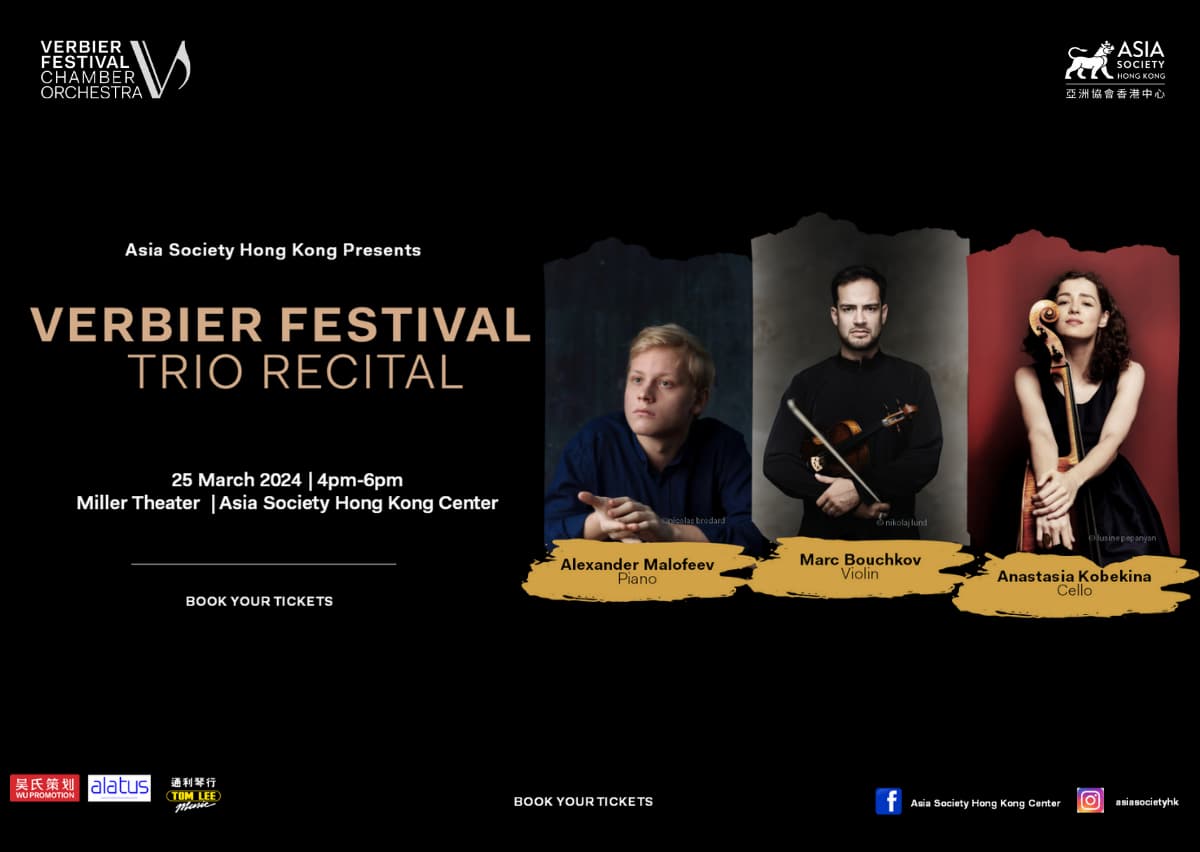
The three soloists featured in Beethoven’s Triple Concerto will present Hong Kong audiences with a dedicated chamber performance at the HK Asia Society on 25 March 2024. The Verbier Festival Trio Recital features Franz Schubert’s Trio No. 1, a work that completely freed the cello part from its historical role as harmonic support, and a composition that adopted the then unusual four-movement scheme. The so-called “Dumky” Trio by Antonín Dvořák derives its nickname from a music term originating in the Ukrainian language. It designates an instrumental composition characterized by vivid swings of mood and tempo, between sad and joyful, and expressive of a particular Slavonic volatility of temperament.
For more of the best in classical music, sign up for our E-Newsletter

